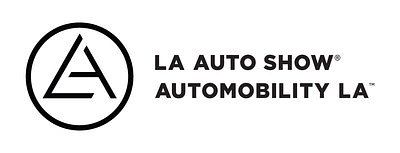
LA Auto Show Bets on Future Tech as Industry Navigates Shifting Gears
AutoMobility LA aims to showcase innovation amid a changing landscape. Will the event remain relevant as automakers rethink traditional auto show strategies?
LA Auto Show Bets on Future Tech as Industry Navigates Shifting Gears
Los Angeles, CA – November 15, 2025 – As the automotive industry accelerates towards an electric and increasingly autonomous future, AutoMobility LA returns this week, hoping to demonstrate its continued relevance in a rapidly evolving landscape. While traditional auto shows grapple with shifting manufacturer priorities and the rise of direct-to-consumer marketing, this year’s event is doubling down on showcasing cutting-edge technology and sustainability initiatives.
This year’s show isn't about the flashy reveals of yesteryear; it’s about a quiet revolution. Companies aren't just unveiling new models; they're demonstrating complete ecosystem solutions - from charging infrastructure and battery technology to software platforms and data connectivity. The event anticipates over 1,000 industry professionals and media will attend, a slight decrease from pre-pandemic levels, but organizers maintain the quality of attendees and showcased innovation remains high.
The Electric Current: Kia, Hyundai, and Lucid Lead the Charge
The spotlight this year will undoubtedly be on electric vehicles. Kia is slated to unveil a new electric SUV boasting extended range and advanced driver-assistance features, positioning itself as a major competitor in the burgeoning EV market. Hyundai is expected to showcase a next-generation autonomous vehicle platform, hinting at its long-term vision for self-driving technology. One industry source stated, “Hyundai is very serious about being a leader in autonomous driving, and this platform is the culmination of years of research and development.”
Lucid Motors is also making waves with its anticipated display of a high-performance luxury EV, aiming to establish itself as a premium player in the electric vehicle segment. “Lucid is really trying to redefine luxury in the EV space,” commented one analyst. “They’re focusing on design, performance, and technology to create a truly compelling product.”
Beyond EVs: Honda’s Hydrogen Vision and the LA28 Olympics
While EVs dominate the conversation, Honda is highlighting its commitment to hydrogen fuel cell technology as a viable alternative. The company is expected to discuss its latest advancements in hydrogen fuel cell technology and its plans for expanding hydrogen infrastructure. Jennifer Symington, a Honda spokesperson, noted that, “Hydrogen fuel cells offer a unique set of advantages, particularly for long-range applications and heavy-duty vehicles.”
Adding another layer of sustainability, the 2028 Los Angeles Olympics will be prominently featured. Julia Kang, representing the LA28 organizing committee, will emphasize the Games' commitment to sustainability initiatives, including electric vehicle transportation for athletes and staff and the use of renewable energy sources. The Olympics’ goals align with the increasing focus on environmental responsibility within the automotive industry.
The Shifting Auto Show Landscape: Relevance in a Digital Age
However, the future of auto shows remains a topic of debate. While events like AutoMobility LA offer a valuable platform for showcasing innovation and networking, some manufacturers are questioning the return on investment compared to digital marketing and direct-to-consumer sales. “The industry is changing,” stated one automotive analyst. “Companies are realizing that they don’t necessarily need auto shows to reach their target audiences.”
This year's attendance figures, while stable, reflect a broader trend. Manufacturers are becoming more selective about which shows they participate in, prioritizing events that align with their strategic goals and offer a measurable return on investment. “Auto shows need to adapt,” explained another industry insider. “They need to offer something that digital marketing can’t – a truly immersive and interactive experience.”
AutoMobility LA is attempting to address these concerns by focusing on experiential exhibits, technology demonstrations, and networking opportunities. The show is also incorporating a virtual component, allowing attendees to access content and participate in events remotely. However, the challenge remains: proving that these efforts are enough to justify the significant cost of participating in a physical auto show.
Local Impact and Economic Benefits
Despite the challenges, AutoMobility LA continues to provide a significant boost to the local economy. The event generates an estimated $50-70 million in direct spending, supporting thousands of jobs in the hospitality, transportation, and retail sectors. The city of Los Angeles views the event as a key component of its economic development strategy.
“AutoMobility LA is more than just a car show,” said a spokesperson for the Los Angeles Convention & Visitors Bureau. “It’s a platform for innovation, a driver of economic growth, and a celebration of the automotive industry. The event continues to contribute to the city’s standing as a global hub for technology and innovation.”
Looking Ahead: The Future of Mobility
The success of AutoMobility LA, and indeed all auto shows, will ultimately depend on their ability to adapt to the changing needs of the automotive industry. By focusing on innovation, sustainability, and experiential engagement, the event can maintain its relevance and continue to play a vital role in shaping the future of mobility. However, the industry must also recognize the growing importance of digital marketing and direct-to-consumer sales. The future may not be about flashy reveals but about building lasting relationships with consumers and demonstrating a commitment to a more sustainable and connected future.
